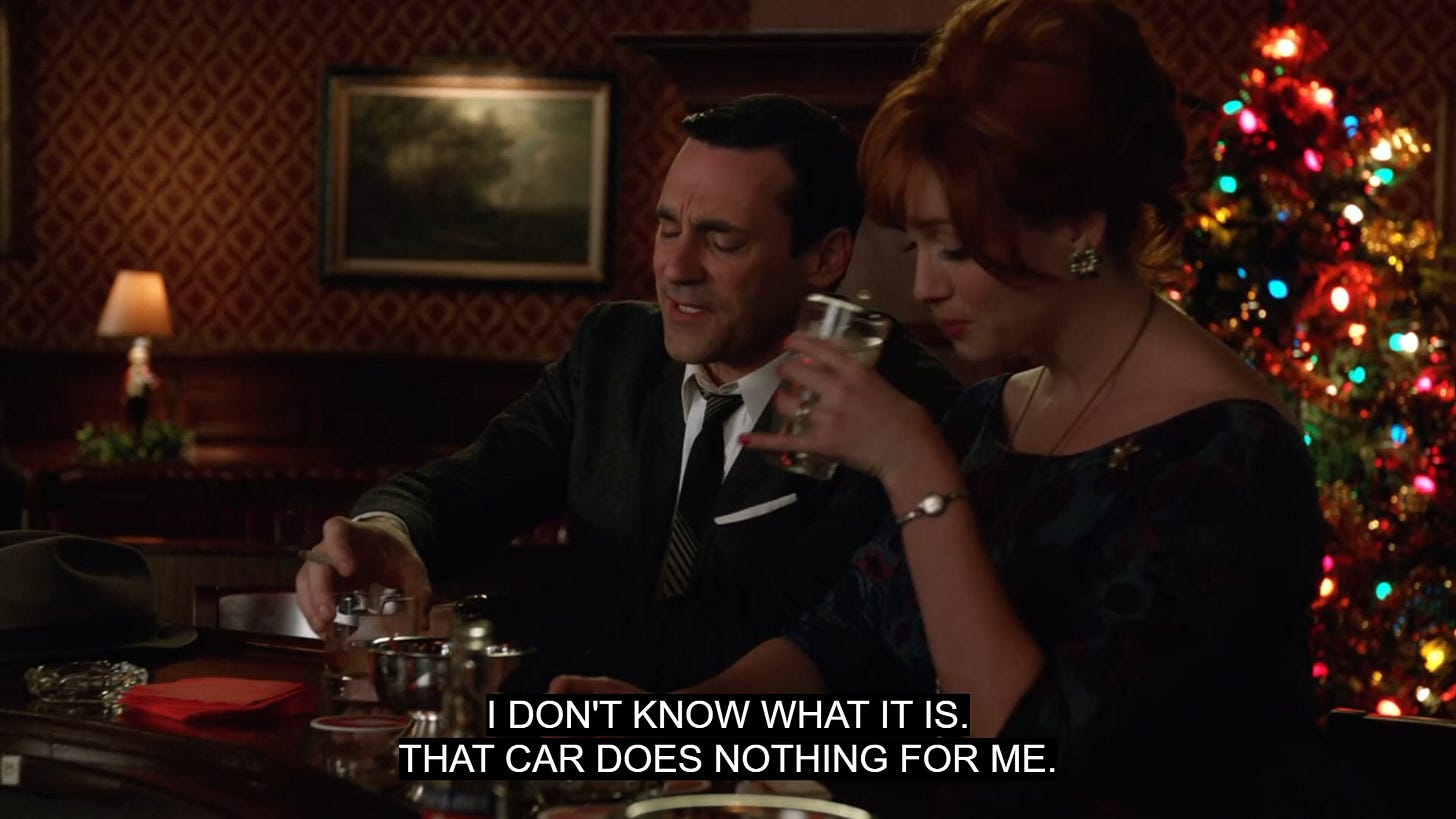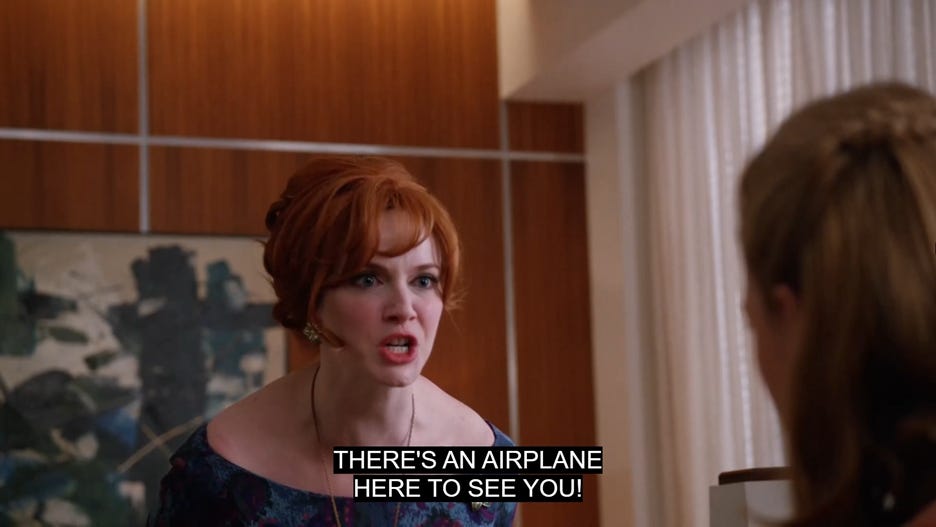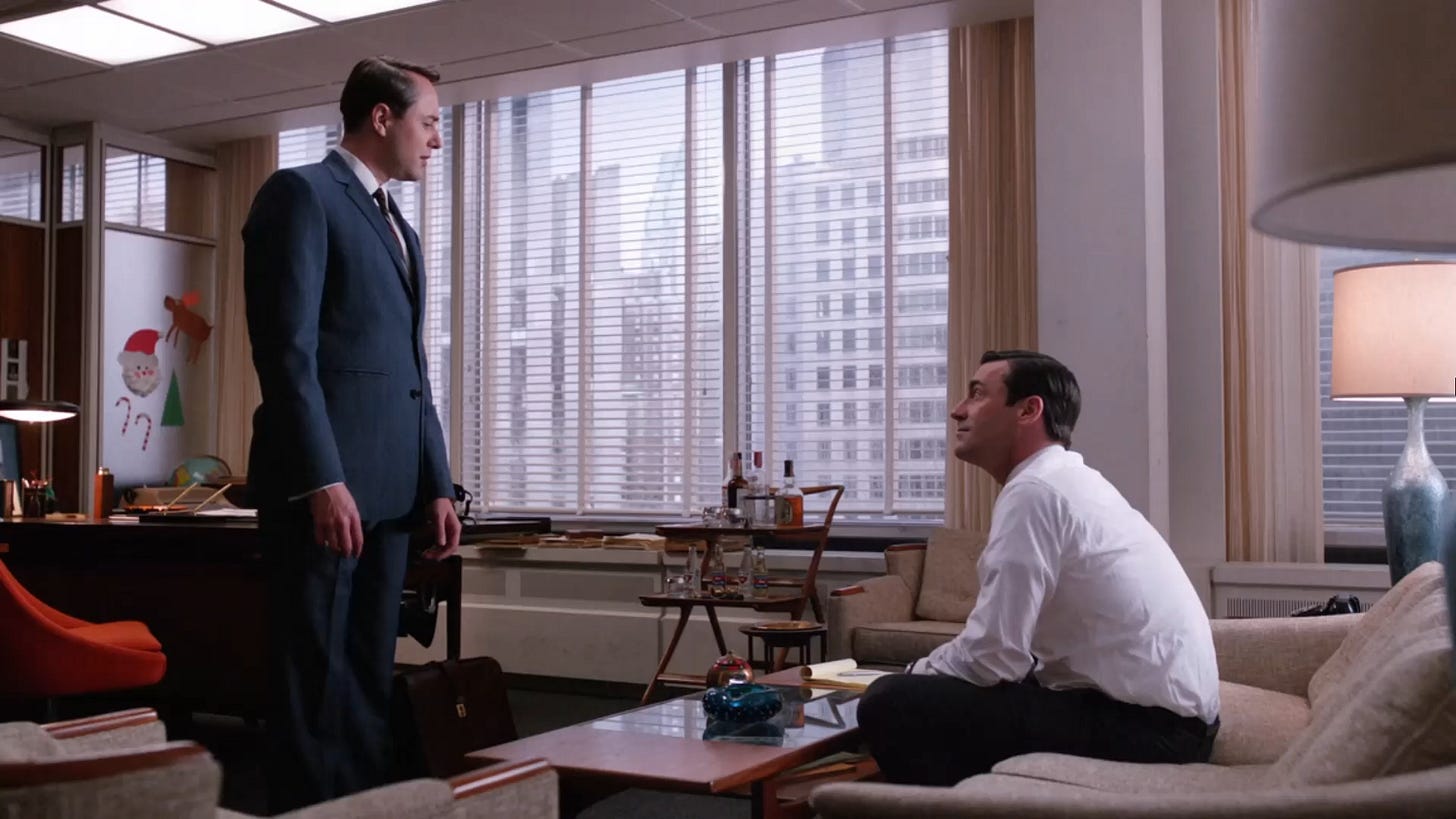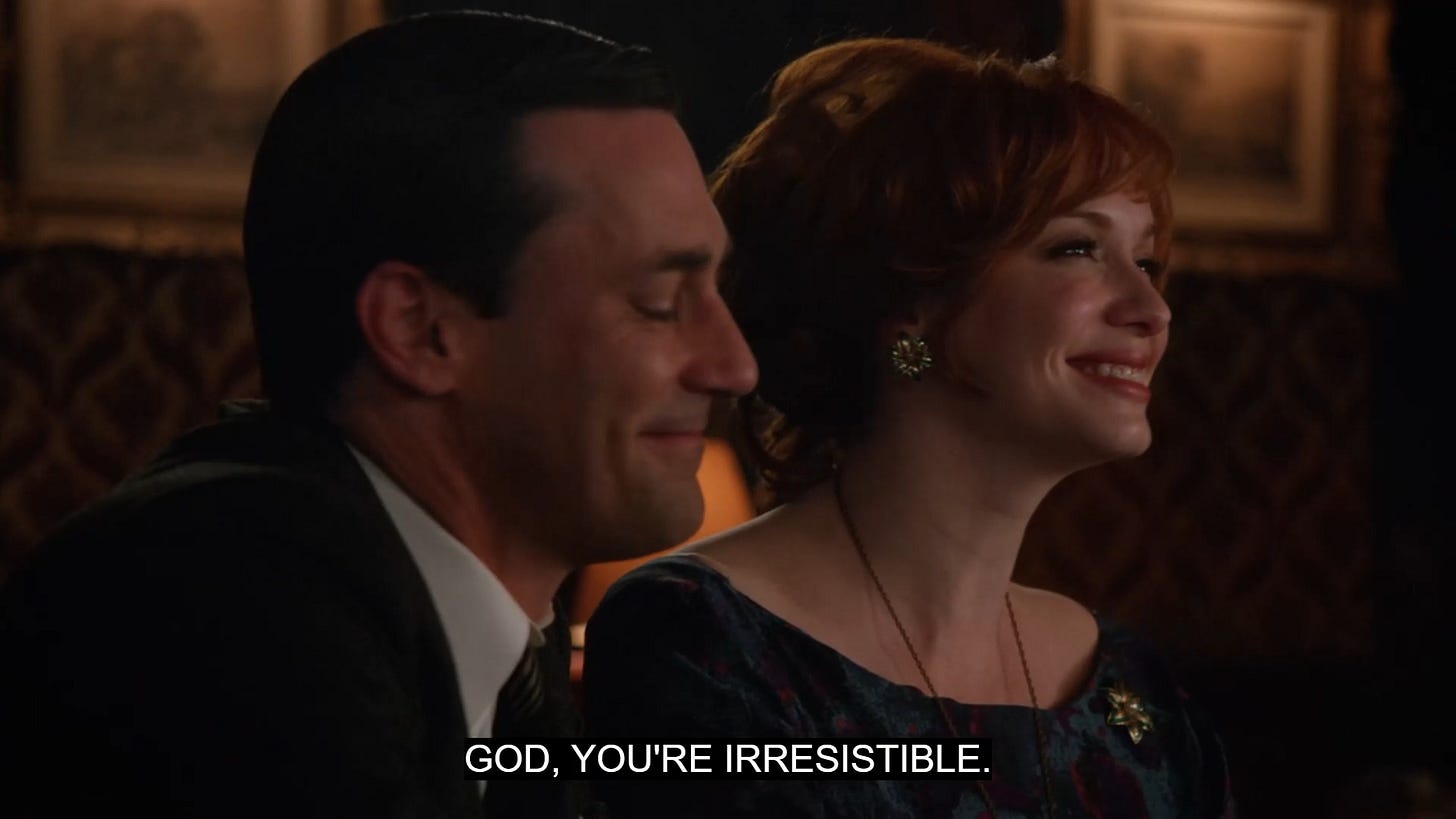Season 5: Episode 10
“Christmas Waltz”
Directed by Michael Uppendahl
Written by Victor Levin & Matthew Weiner
Setting: December 1966
Entering this rewatch, Season 5 was not so fond in my memory. That may be a shock to some of you. I knew it was a great season with some of the best-written television episodes of all time and, as I started watching, wondered why I had been reluctant to revisit. What held me back from 1966-67 on Mad Men?
Then I remembered. “Oh yeah, the…
SUFFERING!”
This isn’t to say that there is not immense suffering in the prior seasons or that Season 5 should have been sunshine and rainbows ending with Lane Pryce being sent to live on a farm upstate.
Season 5 and this episode in particular do an excellent job building up the gut punch of the final episodes. The characters see their destiny but refuse to accept anything worse can come. Have they not been hurt and hurt others enough?
They come to pretend that the fate they feared for so long is actually better. The hope of Season 4 is extinguished by reality. They were pretending, it was always going to end badly.
The most common approach to hardship in Mad Men is for the characters to pretend. In the aftermath of Greg serving Joan divorce papers and an airplane-related outburst, Don takes Joan out to play house.
Don and Joan, who the writers wisely never put in a relationship, pretend to be an overindulgent couple out to purchase a new Jaguar. The excursion could be disguised as work with Jaguar on track to become a potential client but these two just want an excuse to get drunk during work hours that isn’t Pearl Habor-related.

After the destruction of her marriage and signs that Don will soon destroy his own, the two find comfort in pretending they are “happily” married. Every problem is solved with money and new, expensive things. They’ve never cheated, lied, or made the other one cry. For a brief moment, they are in a marriage with no problems.
Then they return to reality.
No child plays house to say “Why didn’t you call me from the office if you were going to be late!” while they take an invisible chicken out of their plastic oven.
What you have to understand about Don Draper is that inside he is still just a scared, poor boy living through the Great Depression. His reaction to the troubles and trials of life is also going to be a reaction to everything he went through as a child. There was no pretending his stomach was not hungry then. With money and status, he believes he can pretend anything now.
He can pretend he is in a happy marriage.
He can pretend he loves his job.
He can pretend he is another man.
Don is always playing some degree of pretend, taking long naps in his office and then grabbing a pen and paper the moment anyone walks in to appear as if he is hard at work.
If Megan needs to take acting lessons from anyone, she should ask her husband!
The escape with Joan starts as pretend but quickly returns both to reality. The two have a complete understanding of their friendship, aware of each other’s faults and strengths. There’s as much respect for a coworker as there is love for a dear friend.
Around Joan, Don shows love without any selfish desires. He finds a peace opening up to her that has not been present since Anna’s death.
The difference is that Anna always believed that Don could be better whereas Joan always fears that Don could become worse. Joan’s fear becomes confirmed when they are not on speaking terms by the show’s end.
“Christmas Waltz’s” bar scene between them is one of the best on the show and there is an added bittersweet element knowing that Mad Men ends with Joan holding no sympathy for Don Draper.
They likely never meet again.
For the time they were friends, they understood each other. In the end, as painful as it is, Don understands why they are no longer friends.
There is no more pretending.
Harry Crane represents an inverse of this by being a bad friend who goes on pretending that he is a good one. Former wannabe Orson Welles Paul Kinsey returns to the show as an enlightened member of the Hare Krishna movement with a lot of love to share.
Harry only wants to share the love with Paul’s fellow Krishna follower Mother Lakshmi who is anxious to share everything with Harry except for a bath.
Paul pretends to be spreading enlightenment to Harry but is just using him to send a God-awful Star Trek fan script subtly called “The Negron Complex” to Gene Roddenberry.

Everyone has become so wrapped in their games of pretend that reality is warped and the lies only get worse:
- Paul cannot admit he is a terrible writer because it is his “only way out.” He’s not going to be able to live on a farm financially free to write if he has to go back to an office like Sterling Cooper.
- Harry will not admit Paul is a terrible writer because he wants to sleep with his free love girlfriend. After he does, Harry will still not admit that Paul is a terrible writer because now he feels guilty over what he has done. I also don’t think Harry has it in him to be critical because he is a coward who will do whatever he can to avoid conflict.
He finds it easier to lie to Paul and tell him he would be successful in LA. This is a death sentence for Paul signed by a man who could have helped save him with honesty rather than a ticket across the country.
Harry, like Don, thinks money can buy you peace.
Oh wait! There’s more than just psychological pretend going on? In addition to all of this insecure madness, Lane Pryce is committing identity theft to pay off his taxes. He forges Don’s name on a check and becomes irate when the scheme already begins to fall apart.

This game of pretend is sadder than what any of the other characters are doing because it isn’t an escape, this is a last resort. Lane Pryce will go to jail if he does not pay his taxes and he will go to jail if it is discovered he embezzled money.
Sadder still, he could have just asked for help and Don would have been there for him. Money means nothing to Don and he may have even just told Lane to keep it and not worry about paying him back.
The way out for all of these characters is honesty. It can be a painful path but walking it prevents more suffering in the future.
Christmas is a bittersweet time of year on Mad Men because it carries the expectations of the year before. Are things better?
Even if things were worse, a new year is coming. A new year can always be better.












